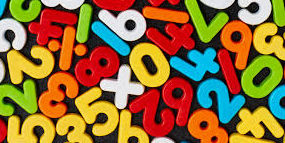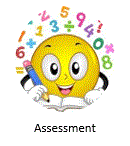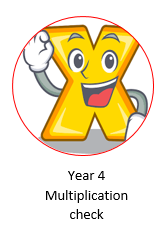At Kingsfield, across Key Stage 1 and 2, Mathematics is immersed into the curriculum and is taught daily in a Maths lessons which is predominantly taught in the morning and through cross curricular links where possible to embed knowledge and skills.
As stated within our intent, at Kingsfield we teach Mathematics through the CPA approach which allows children to have a full understanding in their mathematical knowledge rather than just being able to apply the skill. If you would like to know more about the CPA approach, please click on the link below.
Below gives you more information to what Mathematics looks like in each year group.
In Year 1, children will start to build confidence in working with numbers, through developing their counting and calculation skills. They will also gain an understanding of halves and quarters, start to measure and tell the time, and learn about some 2D and 3D shapes.
 Children will be taught to count forwards and backwards gradually to 100, add and subtract numbers to 20, and be introduced to the idea of multiplying and dividing through sharing.
Children will be taught to count forwards and backwards gradually to 100, add and subtract numbers to 20, and be introduced to the idea of multiplying and dividing through sharing.
Throughout their learning, children will be encouraged to problem and reason using the CPA model where appropriate and depending upon ability.
In Year 2, children continue to develop their counting and calculation skills to number to 100, learning different ways to multiply and divide. They will also extend their understanding of fractions and are taught to measure length, weight, volume, temperature, time and money, discover more about 2D and 3D shapes, and begin to learn about statistics.
Children will learn how to count in steps of 2, 3, 5 and 10 and learn number bonds to 20. They are taught how to partition numbers into 10s and 1s to add and subtract one-digit and two-digit numbers. It is in this year that children are introduced to 2, 5 and 10 times tables and how to find 1/2, 1/3, 1/4, 2/4 of quantities and shapes.
Throughout their learning, children will be encouraged to problem and reason using the CPA model where appropriate and depending upon ability
In Year 3, children will continue to develop their understanding of numbers to 1000 and start to calculate using formal written  methods. They will learn a lot more about fractions, including tenth and will find perimeters of 2D shapes, use the 24-hour clock, recognise angles, and start to use bar charts.
methods. They will learn a lot more about fractions, including tenth and will find perimeters of 2D shapes, use the 24-hour clock, recognise angles, and start to use bar charts.
Children will learn how to count in steps of 4, 8, 50 and 100 and order and compare numbers to 1000. They will continue to develop their portioning skills, partitioning number into 100s, 10s and 1s, add and subtract three-digit numbers, and multiply two-digit by one-digit numbers. They also continue to their knowledge and fluency of their times tables and are taught the 3, 4, and 8 times tables and begin to add and subtract fractions.
Throughout their learning, children will be encouraged to problem and reason using the CPA model where appropriate and depending upon ability.
In Year 4, children develop their mental and written calculation skills using larger positive numbers up to 1,000 000 and fractions. It is at this point in their learning that they are introduced to negative and decimal numbers, as well as some Roman numerals. They will convert between units of measurement, find perimeters and areas, and learn more about angles and symmetry. They will plot shapes on coordinate grids and start to use time line graphs.
Children will learn how to count in steps of 6, 7, 9, 25 and 1000, add and subtract four-digit numbers and multiply three-digit by one-digit numbers. They will continue their fluency and knowledge of their times tables up to 12 x 12 and be able to divide by 10 and 100 to give decimal answers. Children will also be given the knowledge of how to round numbers to the nearest 10, 100 and 1000, or whole number for decimals.
Throughout their learning, children will be encouraged to problem and reason using the CPA model where appropriate and depending upon ability
Progress
Children are assessed periodically assessed against the National Curriculum expectations to ensure children continue to make progress.
We ensure that children progress in their Mathematics knowledge through:
- Daily Maths sessions, where vocabulary is key.

- The use of a range of concrete and pictorial methods to ensure children have a choice in the method that works best for them.
- Children are encouraged to use and apply their Mathematical knowledge in independent work, guided Maths sessions and through reasoning and problem solving to ensure that their knowledge and skills are secure and embedded. To find out more about reasoning and problem solving, please click here
- A Maths working wall, which promotes Mathematical language and current learning.
- Weekly mental maths (Yr1 – Yr4) or times table tests (Yr2 – Yr4) to allow children to practise their mental arithmetic skills and times tables under time constraints.
- Regular assessments which are then used to inform planning and cover gaps.
- Clear, high expectations and three assessment points throughout the year, which are reviewed and monitored – interventions are put into place for those children who need extra support to meet the expectations set.







